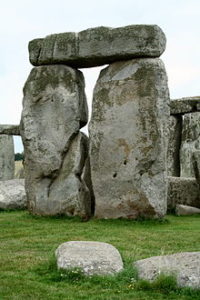Today, December 21st is the shortest day of the year for us in the Northern Hemisphere. The Winter Solstice is, for many, the day that marks the start of winter. As I look out of my window the sun is trying to shine, rather weakly and obscured by clouds and in some places fog.
I know that these next few months can badly affect those who suffer from S.A.D. Seasonal Affective Disorder. In fact for many of us in chilly Britain it can be a rather gloomy time of year. So, I thought I would help myself, and others with a shot of sunshine tapping…well, it’s tapping into the energy of Summer. I revisited the last day of my Summer holiday and gave myself a much needed boost of warmth.
Myths and stories associated with the Winter Solstice
Stonehenge is probably most associated with the Winter Solstice and significantly, the Great Trilith was erected  outwards from the middle of the monument, i.e. its smooth flat face was turned towards the midwinter sun in celebration of this time of year. It is the site of many pagan rituals that are said to have become customs we now associate with Christmas.
outwards from the middle of the monument, i.e. its smooth flat face was turned towards the midwinter sun in celebration of this time of year. It is the site of many pagan rituals that are said to have become customs we now associate with Christmas.
Feasting and drinking at this time is common! That was because centuries ago many wines and ales were now fermenting and ready to drink. Plus cattle were eaten at the start of winter as they were too expensive to feed through the winter months.
The word Solstice means sun standing still- to the naked eye the sun appears static in the sky at this time.
The Norse traditions include the goddess Frigga labouring hard to make the days longer- turning her YUL (wheel) to accomplish this- which is where the word Yuletide comes from. We can also thank the Nordic people for the story of a special gift giving elf- Odin who may have been the first Father Christmas.
Whatever your beliefs there is no doubt that while December 21st is this years’ shortest day, it also means that from now on the days will get longer…which means eventually spring will arrive and the sunshine will return.
Download a free EFT manual or find out about our EFT training here.

